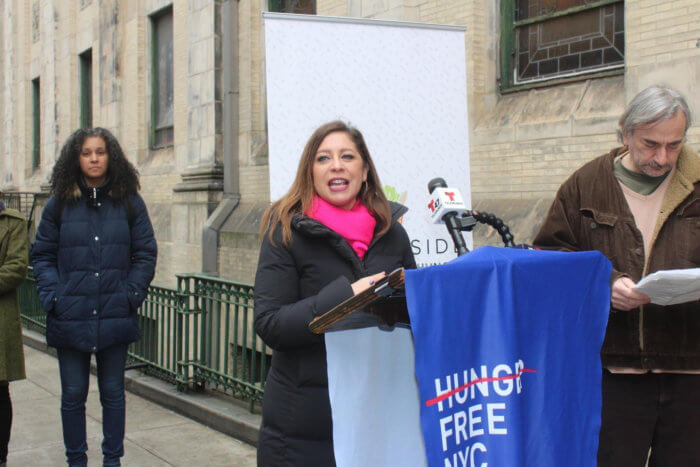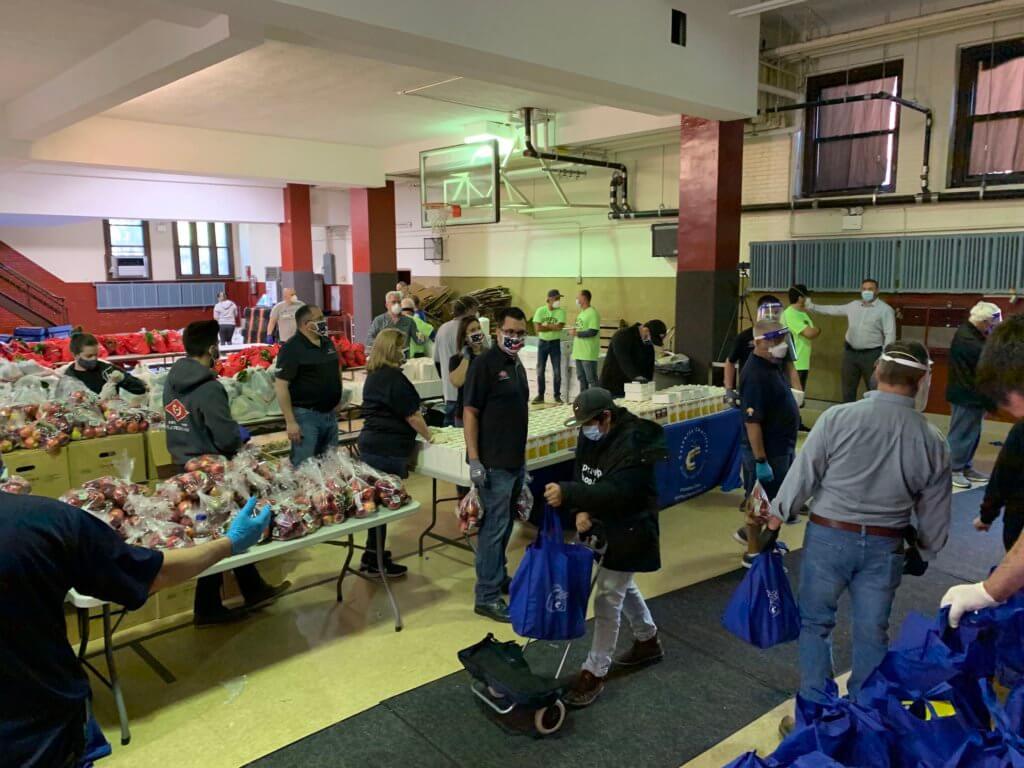Food pantries and community-based organizations across Queens and the city are ramping up efforts to relieve thousands of families who saw their federal Supplemental Nutrition Assistance Program (SNAP) benefits reduced on March 1.
More than 3 million New York families will have far less to spend on groceries after the emergency food assistance program that Congress enacted at the height of the pandemic has ended. Seniors are particularly vulnerable as they depend on Social Security as their primary source of income.
“Older adults are still feeling the effects of the COVID-19 pandemic, including the mental health challenges caused by social isolation. These have been compounded by the hardship of living on a fixed income despite inflation, increasing their vulnerability,” said Queens Community House (QCH) Associate Executive Director for Older Adult Services Anne Foerg. “At Queens Community House, we are seeing the financial impact of SNAP benefit cuts on our older adult members and the significant worry this is causing them during already challenging times.”
She added that QCH would provide services to soften the blow across the borough.
“We are working to help connect older adults to resources that will prevent food insecurity, including access to a daily hot meal at one of our five older adult centers, home-delivered meals to those unable to prepare meals and groceries from our two food pantries,” Foerg said. “Our caseworkers will continue to reach out and screen participants for other benefits and entitlements that will help counteract the loss of SNAP benefits.”
For some of the most extreme cases, monthly food allotments will drop from $281 to $23 a month, even as grocery prices continue to rise at their fastest rate in 40 years — up nearly 12% over the past year, according to the United Way of New York City, which joined City Harvest and Food Bank for New York City in calling on state and city leaders to collaborate and use budgets to keep crucial support available.
“To help make up for the loss of benefits, there should be a coordinated response that involves community organizations working with city and state legislative leaders and other key officeholders who should use their budgets to protect New Yorkers from cuts in SNAP benefits by increasing investment in programs that provide crucial food support,” they said in a joint statement. “On the federal level, Congress should act to increase SNAP supports and sufficiency through key changes to the Farm Bill. Acting together, we can help make sure fewer New Yorkers go hungry.”
Assemblywoman Jessica González-Rojas urged Gov. Kathy Hochul and Senate and Assembly leadership to fund anti-hunger initiatives in this year’s state budget, including her Universal School Meals bill, which would ensure all New York students receive nutritious school meals, as well as a measure that would help victims of SNAP and cash assistance fraud recoup their losses.
“On the heels of the federal government cutting off emergency SNAP benefits to thousands of New Yorkers, it’s more important than ever that our state budget invests in anti-hunger initiatives we know work. It’s on us now. Addressing hunger in our state is a moral imperative,” González-Rojas said. “These measures have incredible health, academic and economic benefits for families.
Every young student should be able to access healthy breakfast and lunch at school for free, every public benefits recipient should be able to recoup their stolen funds, and if we do this right, more New Yorkers can be pulled out of food insecurity.”

SNAP benefits, on average, are now a meager $6 a day, according to the Food Research and Action Center.
“SNAP is a critical resource that helps working people feed their families,” Congresswoman Nydia Velázquez said. “It’s vital that we work at the state and federal levels to make adequate investments in fighting hunger and ensure SNAP recipients have the support needed to avoid food insecurity. I was proud to fight to include a provision in the 2023 omnibus bill to reimburse funds stolen from SNAP recipients by scammers, and I look forward to continuing to work to protect and strengthen this crucial program.”




































